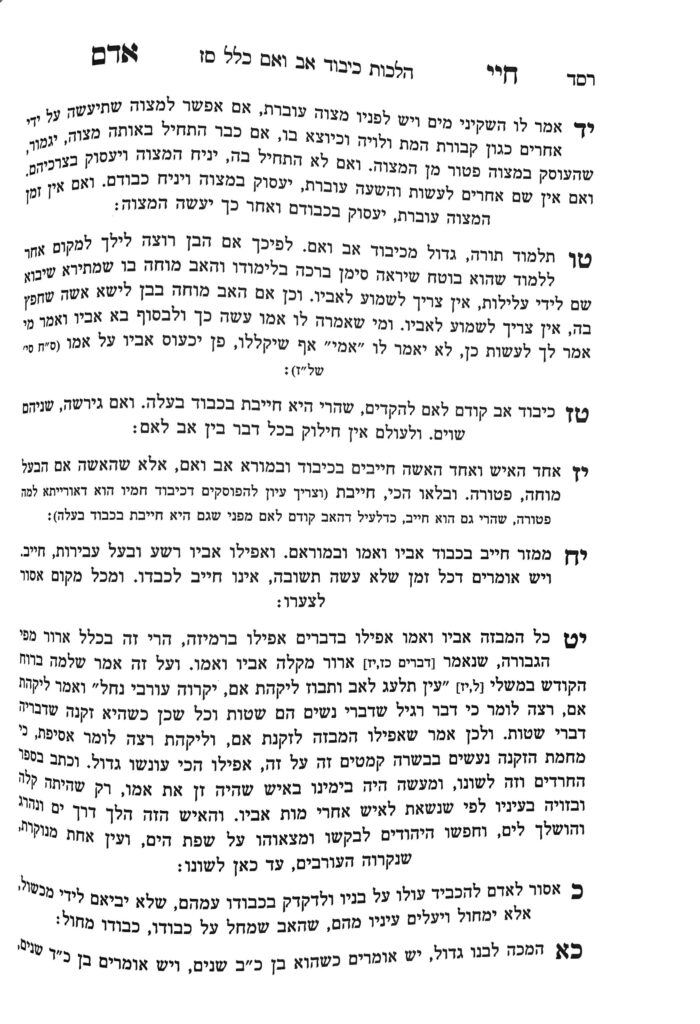We are continuing in siman 21, where the Chayei Adam writes that if one hits their child when they are at an age that the child will react in a manner in which they transgress kibud av v’eim, the parent transgresses lifnei iver.
Rav Nissim Karelitz ztl, in his sefer Chut Shani, writes that this halacha is not limited to physical hitting. If a parent abuses a child in a mental or emotional manner which will inevitably cause the child to respond in a way which lacks kibud av v’eim, the parent has transgressed lifnei iver.
In the sefer Ohel Yaakov, the author extends this idea, and writes that the parent has also transgressed lo sonu ish es amiso, the issur ona’as devarim (causing pain with words). When a parent is performing chinuch, there is no issue of lo sonu, because sometimes the chinuch process requires discomfort in order for the lesson to internalize. However, when no chinuch is being performed, one transgresses this issur as well.
Obviously, no parent is perfect, and chinuch does not require a parent to be perfect. A child learns from general patterns, so as long as a parent gives the child the general knowledge that they are valuable and the parent believes in them, the damage caused through lifnei iver or lo sonu is not done. Every child is different, as the Chayei Adam wrote yesterday, and part of the responsibility of the parent is to identify which method will be most appropriate for each child.
There is another issur of lo sirdeh bo befarech. Rabbeinu Yonah explains that the simple understanding of this pasuk as referring to a master overburdening a slave. However, he extends it and writes that any time a person is in a position of authority and uses their authority to get what they want from other people, they transgress lo sirdeh. Therefore, he writes that if an adam chashuv asks someone for a favor, and the person accedes only because of the chashivus of the person making the request, they have abused their authority and transgressed this issur. He writes that a talmid chochom or communal leader needs to be very careful about this issur.
This issur applies to a parent vis a vis a child as well. A child belongs to Hashem, and has been placed in the hands of the parents for safekeeping and care. Part of that process of safekeeping and care is teaching the child the chashivus of the parent, for, as we have learned (shiur 1314), a child learns chashivus for Hashem through understanding the chashivus of their parents. A parent must realize that chinuch is not for the parent’s benefit, but for the child’s benefit.
Summary
It is assur for a parent to be overburdening on a child in a way that causes them to transgress the mitzvah of kibud av v’eim. Rather, the parent should be mochel or ignore any transgressions to their kavod.
Similarly, a parent who physically, mentally or emotionally abuses their child transgresses lifnei iver, lo sonu and lo sirdeh bo befarech.



